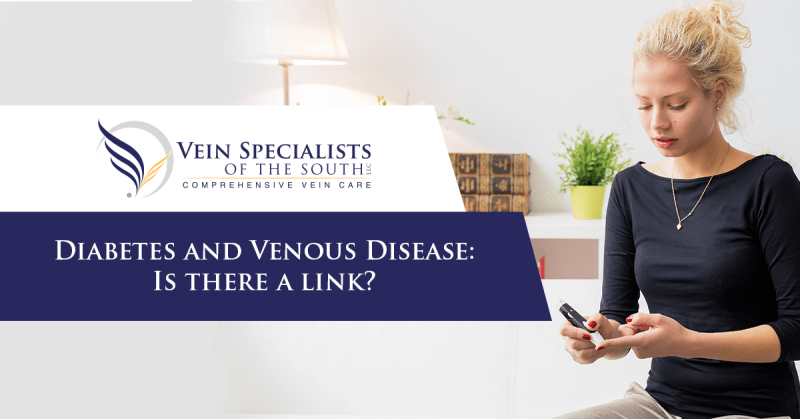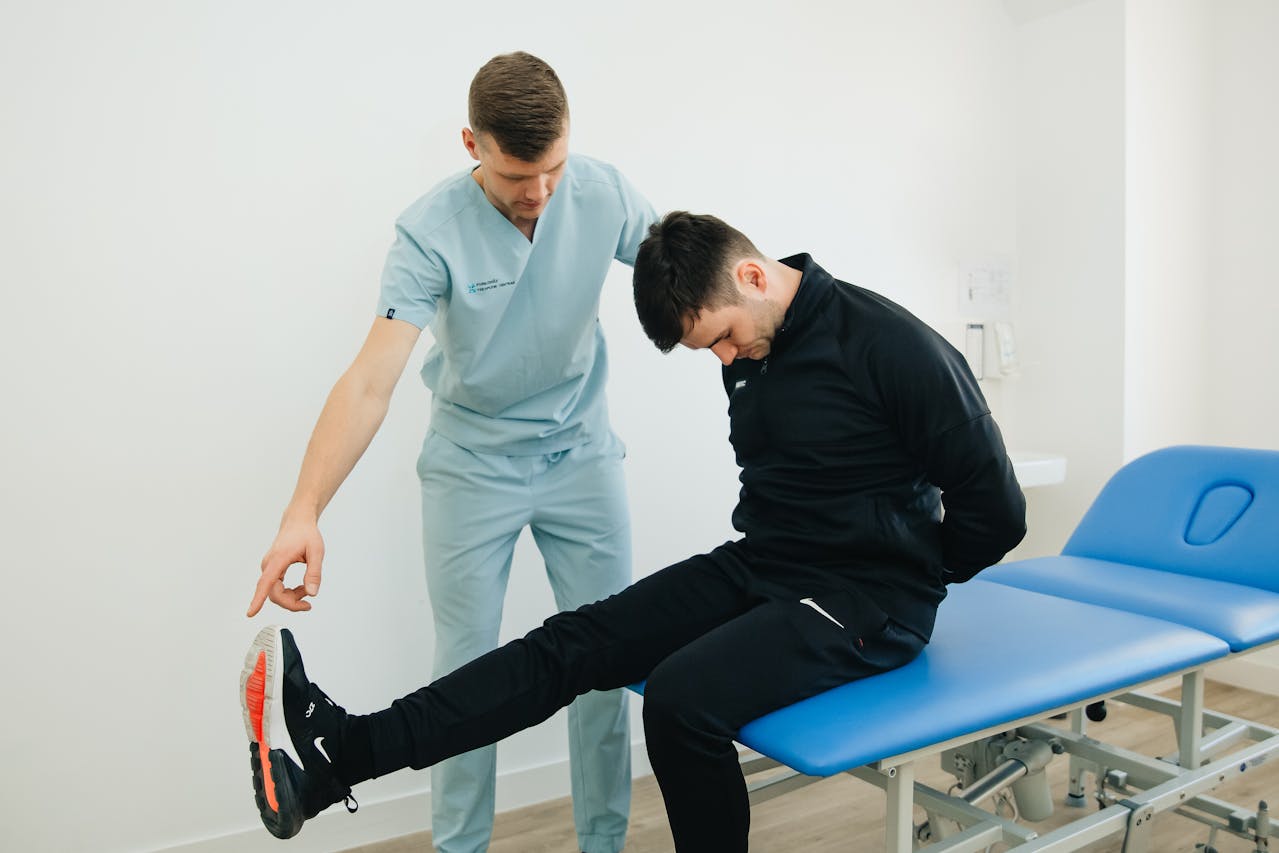How Are Diabetes And Venous Disease Linked?
There are medical and lifestyle reasons that put diabetes patients at greater risk for venous disease. In this article, we will look at each of them and how they contribute to various types of venous disease, including varicose veins, spider veins, and DVT.
Diabetes Causes Blood Vessel Damage
Higher blood sugar levels in patients with Type 1 and Type 2 Diabetes can cause blood circulation problems. Blood sugar hits the arteries and veins both directly and indirectly:
- Directly, higher blood sugar levels weaken veins.
- Indirectly, weight gain associated with higher blood sugar can put additional strain on your veins.
This combination of direct and indirect damage to the veins increases the risk of venous insufficiency, leading to varicose veins, leg pain and swelling, and other health hazards like blood clots.
Diabetes To Venous Disease To Diabetes: It’s A Cycle
Finally, these two conditions combined become cyclical. As diabetes can worsen vein health, worsening vein health with pain, leg swelling, and skin changes lead to inactivity also contributing to worsening diabetes symptoms. This dangerous cycle is why it’s so important to manage your diabetes and venous disease, seeking care from specialists who work together to help you improve and manage your conditions.
Diabetes And Blood Clots
Blood clots in the legs can be one of the following:
Both types of blood clots are harmful to your health in a few different ways, the most dangerous being the risk of the clot breaking free and traveling to the lungs. When a blood clot enters a lung, it restricts the flow of oxygen. This results in a pulmonary embolism (PE), a life-threatening, emergency medical situation that causes difficulty breathing, chest heaviness, and a sense of impending doom.
Avoiding a blood clot is a top priority for patients in high-risk categories. Diagnosing a blood clot early and quickly improves patient outcomes. Understanding that you are at a higher risk of developing DVT or SVT gives you more control over your health.
How Are Diabetes And Blood Clots Linked?
A recent Journal of the American Medical Association (JAMA) study found a strong correlation between varicose veins and DVT/SVT. The theory behind this link is two-fold:
- Lifestyle similarities that can lead to both of these conditions:
- sedentary lifestyle behaviors
- weight gain
- Slowed blood flow/blood pooling in varicose veins can lead to a higher risk of clotting
This means that if you have Type 1 or Type 2 Diabetes and varicose veins you could be at a higher risk of developing blood clots. The risk is even higher if you have a family history of venous disease and DVT/SVT. If you have Diabetes and varicose veins seeking the evaluation and treatment by your vein specialists can reduce your risks of DVT/SVT and PE.
How To Take Control Of Your Health
If you have diabetes, you must continue to manage your condition with the help of your physician. This is the best way to protect yourself from all of the complications that come with poorly managed or advanced diabetes.
However, as we stated above, venous diseases are some of the most underdiagnosed and undertreated conditions in the United States. This puts all Americans at greater risk, especially if you have diabetes and/or are in other high-risk categories.
For this reason, it’s very important to seek care with a vein specialist, someone who is an expert in the evaluation and treatment of venous disease.
Below, we assembled a list of steps you should take, in order of urgency:
- Call your doctor or seek emergency medical care if you have leg pain accompanied by:
- Shortness of breath/chest pain
- Palpable, tender nodules on the legs
- Skin redness in the affected area
- Leg swelling that is getting worse
- Difficulty walking
- Skin that is warm to the touch in the affected area
- If you/your doctor suspects a blood clot has formed in your leg, your doctor can contact Vein Specialists of the South to request an Easy Access Appointment. This ensures you are seen more quickly by our providers.
- If you and your doctor suspect venous disease, you can:
- Call Vein Specialists of the South directly to request a consultation.
- Request a referral from your doctor for an in-office appointment at our VSS Macon or Warner Robins, GA office.
- Submit an online request for a digital consultation through VirtualVein.com
- If you do not suspect venous disease but would like to learn how you can take better care of your veins, please:
- Schedule an in-office evaluation
- Or call VSS and sign up for one of our Free Vein Education and Evaluation Events in Downtown Macon
What To Expect At Vein Specialists Of The South
At VSS, we have a team-based approach to evaluation and care of vein disease. Each patient is unique. For this reason, we offer you options from conservative care to the latest minimally invasive procedures. These include:
Final Thoughts On Diabetes And Venous Disease
Diabetes and prediabetes affect more than 100 million Americans. Venous insufficiency affects more than 30 million Americans, but only 10 percent will seek treatment. Our goal is to improve education about venous disease, especially in this higher-risk population of diabetics with vein disease. By meeting our goal of education on the risks of untreated vein disease we are encouraging the early evaluation and treatment of their vein disease to decrease the risks of DVT/PE.
Help us reach more people by sharing this article with your friends and family living with diabetes. Click the social icons below to share on social media and via email.
Contact Vein Specialists Of The South Today
If you have questions or if you’re ready to schedule your appointment, contact our experienced team of vein specialists to get started. We take care of veins all day, every day, and ours was one of the very first clinics in the United States to focus exclusively on vein care. Come to the experts. Come to Vein Specialists of the South and enjoy Better Veins for Life®.










